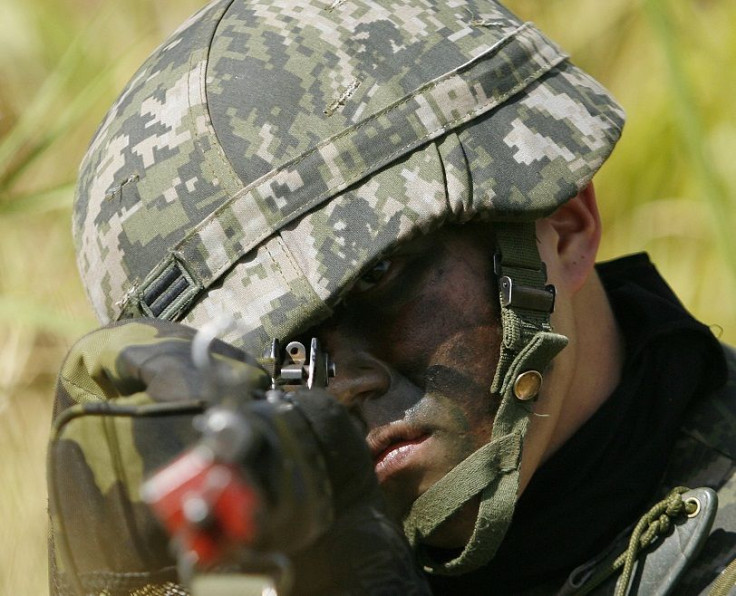Why War Can Actually Help Some Soldiers With PTSD

Though pop culture shows that virtually all soldiers suffer from PTSD upon their return from combat, research does not appear to corroborate that trope. In fact, researchers have previously been flabbergasted as they search for explanations for why PTSD only occurs in some soldiers rather than all of them.
Researchers are beginning to put the pieces of the puzzle together, finding that amygdala size can point psychologists to those at greatest risk for the disorder. Perhaps more interestingly though, researchers have found a section of soldiers whose mental health is bolstered by the trauma of war, rather than hurt by it.
Conducted by researchers from Aarhus University in Denmark, the Royal Danish Defense College, and Duke University in the United States, the study examined 746 Danish soldiers at five different time periods before, during, and after deployment. The soldiers were split into four groups.
The researchers found that 84 percent of the soldiers had no signs of PTSD at any point before, during, or after being deployed. However, some soldiers - three of the four groups - found deployment to be beneficial for their psychological health. Even more intriguing, researchers found that childhood trauma was a greater indication of whether a soldier would suffer from PTSD - not war.
Researchers found that the experience of harsh physical punishment and the witnessing of domestic violence were strongly linked with the later development of PTSD. Researchers explained that these situations often made children feel like they had no control. These childhood experiences could cause loneliness, isolation, and a general feeling of helplessness.
Interestingly, these situations can lead to helpful behavior in soldiers on the battlefield. The soldiers are hyper-vigilant, with quick responses to danger, and can psychologically distance themselves from violent situations. Their "symptoms" make them better soldiers.
However, researchers found no correlation between the amount of time that soldiers spent in combat and the amount that they improved from their traumatic childhoods. Researchers believe that there are other factors that explain their improvement, like the camaraderie that they received from the other soldiers.
Another study, published in the Archives of General Psychiatry, was conducted on 200 participants who had fought in the wars in either Iraq or Afghanistan. Researchers were looking specifically at the size of the amygdala and the role that it may play in PTSD.
The amygdala is an almond-shaped organ that is instrumental in the development of fear. Animals with smaller amygdalas, for example, are more likely to learn in certain ways, making sure that they perform a certain behavior in order to avoid a certain response, for example.
The study found that soldiers with smaller amygdalas were more likely to suffer from PTSD. However, they found that amygdalas did not shrink in response to war, so researchers believe that the size of the amygdala is a risk factor, not a response.
Published by Medicaldaily.com



























